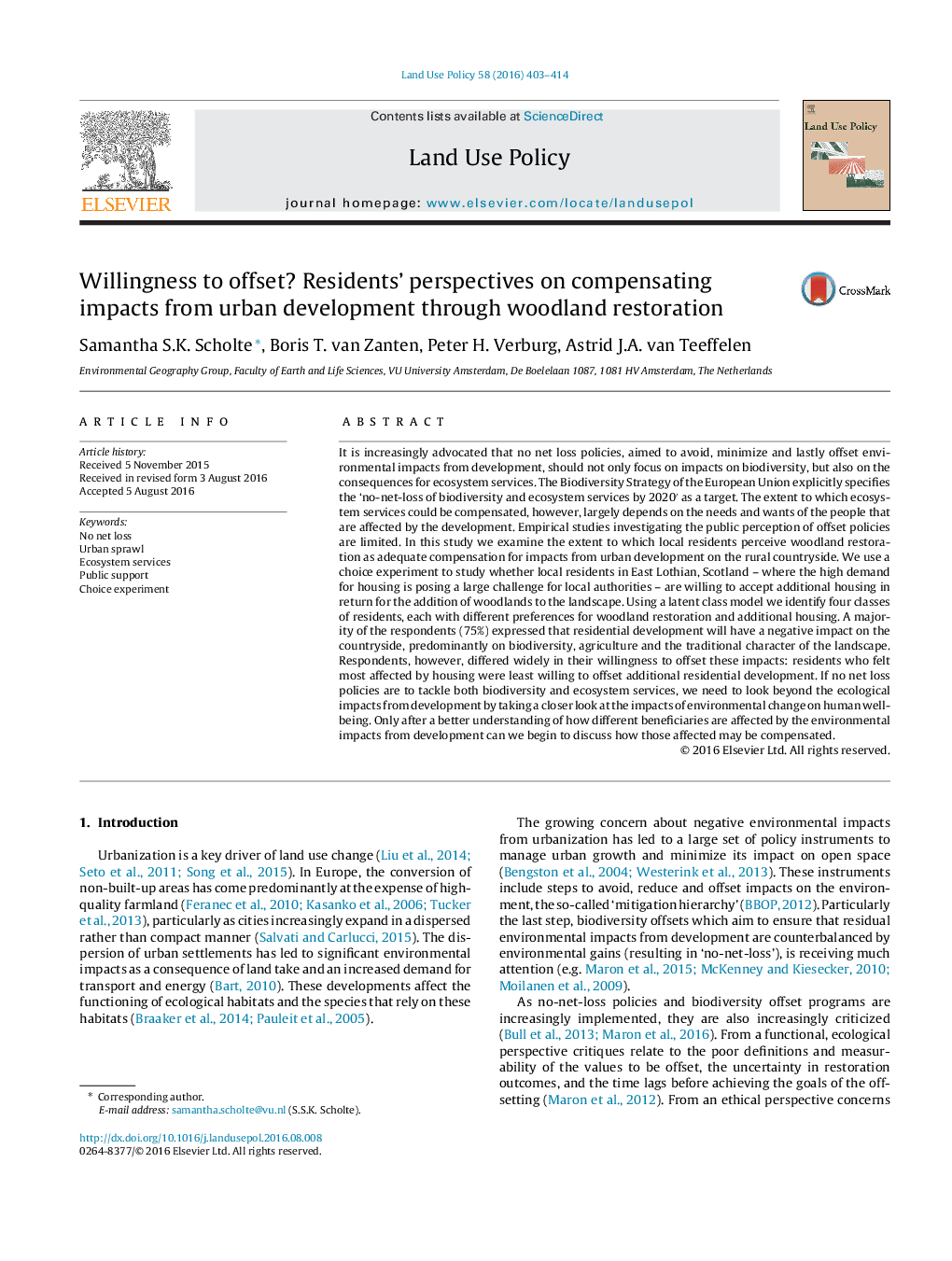| کد مقاله | کد نشریه | سال انتشار | مقاله انگلیسی | نسخه تمام متن |
|---|---|---|---|---|
| 6546913 | 160090 | 2016 | 12 صفحه PDF | دانلود رایگان |
عنوان انگلیسی مقاله ISI
Willingness to offset? Residents' perspectives on compensating impacts from urban development through woodland restoration
ترجمه فارسی عنوان
تمایل به جبران؟ دیدگاه ساکنان در مورد جبران تاثیرات توسعه شهری از طریق بازسازی جنگل
دانلود مقاله + سفارش ترجمه
دانلود مقاله ISI انگلیسی
رایگان برای ایرانیان
کلمات کلیدی
از دست دادن خالص، پراکندگی مراکز شهری، خدمات محیط زیستی، حمایت عمومی آزمایش انتخاب
موضوعات مرتبط
علوم زیستی و بیوفناوری
علوم کشاورزی و بیولوژیک
جنگلداری
چکیده انگلیسی
It is increasingly advocated that no net loss policies, aimed to avoid, minimize and lastly offset environmental impacts from development, should not only focus on impacts on biodiversity, but also on the consequences for ecosystem services. The Biodiversity Strategy of the European Union explicitly specifies the 'no-net-loss of biodiversity and ecosystem services by 2020â² as a target. The extent to which ecosystem services could be compensated, however, largely depends on the needs and wants of the people that are affected by the development. Empirical studies investigating the public perception of offset policies are limited. In this study we examine the extent to which local residents perceive woodland restoration as adequate compensation for impacts from urban development on the rural countryside. We use a choice experiment to study whether local residents in East Lothian, Scotland - where the high demand for housing is posing a large challenge for local authorities - are willing to accept additional housing in return for the addition of woodlands to the landscape. Using a latent class model we identify four classes of residents, each with different preferences for woodland restoration and additional housing. A majority of the respondents (75%) expressed that residential development will have a negative impact on the countryside, predominantly on biodiversity, agriculture and the traditional character of the landscape. Respondents, however, differed widely in their willingness to offset these impacts: residents who felt most affected by housing were least willing to offset additional residential development. If no net loss policies are to tackle both biodiversity and ecosystem services, we need to look beyond the ecological impacts from development by taking a closer look at the impacts of environmental change on human well-being. Only after a better understanding of how different beneficiaries are affected by the environmental impacts from development can we begin to discuss how those affected may be compensated.
ناشر
Database: Elsevier - ScienceDirect (ساینس دایرکت)
Journal: Land Use Policy - Volume 58, 15 December 2016, Pages 403-414
Journal: Land Use Policy - Volume 58, 15 December 2016, Pages 403-414
نویسندگان
Samantha S.K. Scholte, Boris T. van Zanten, Peter H. Verburg, Astrid J.A. van Teeffelen,
